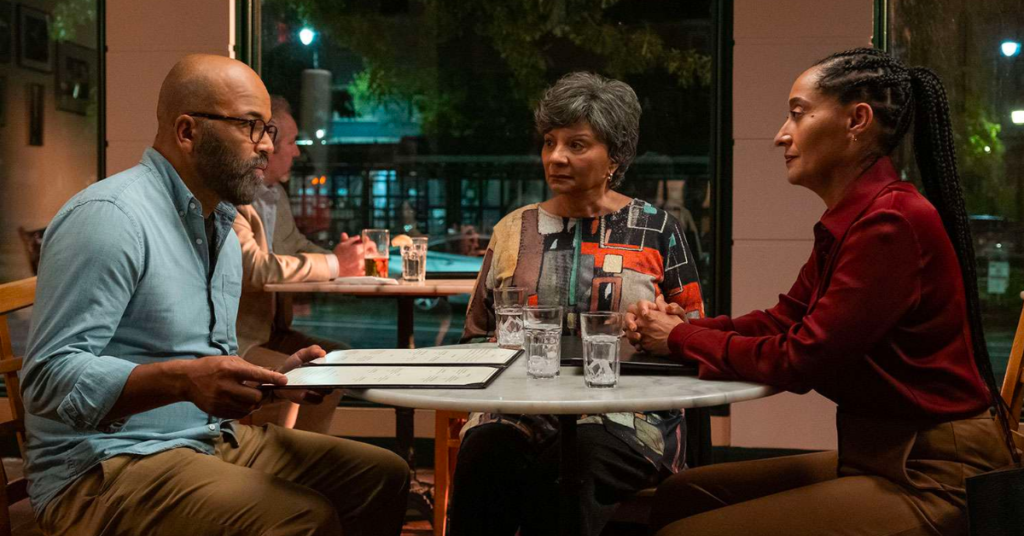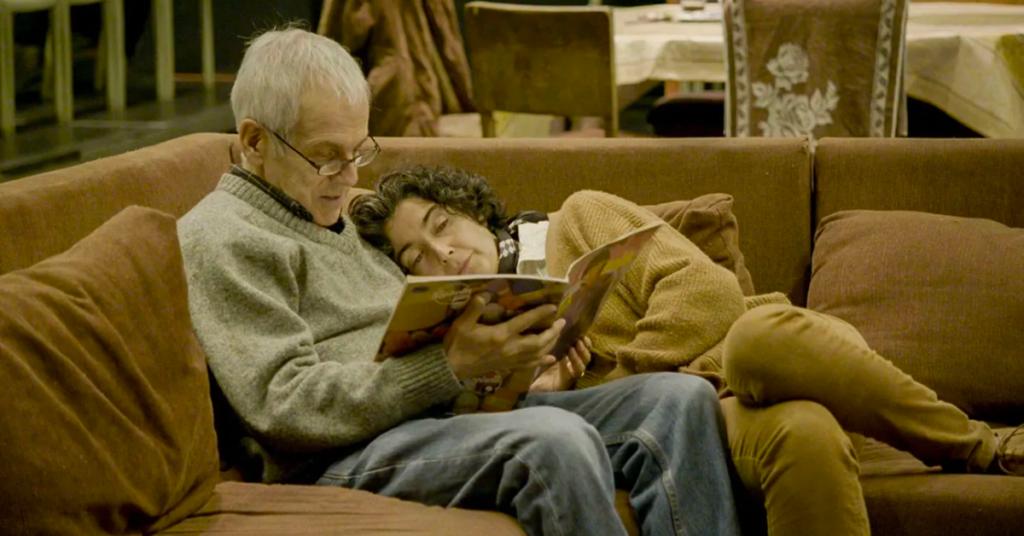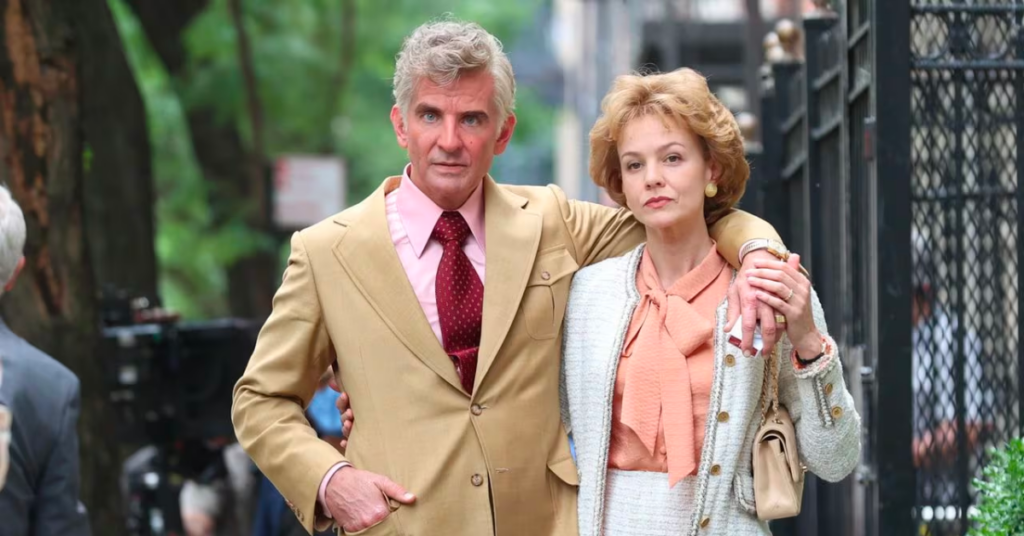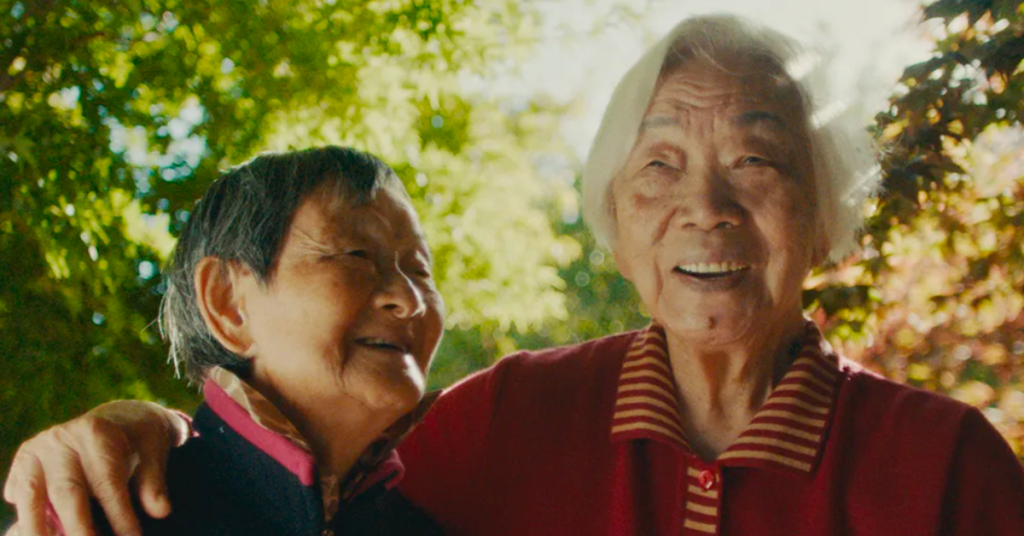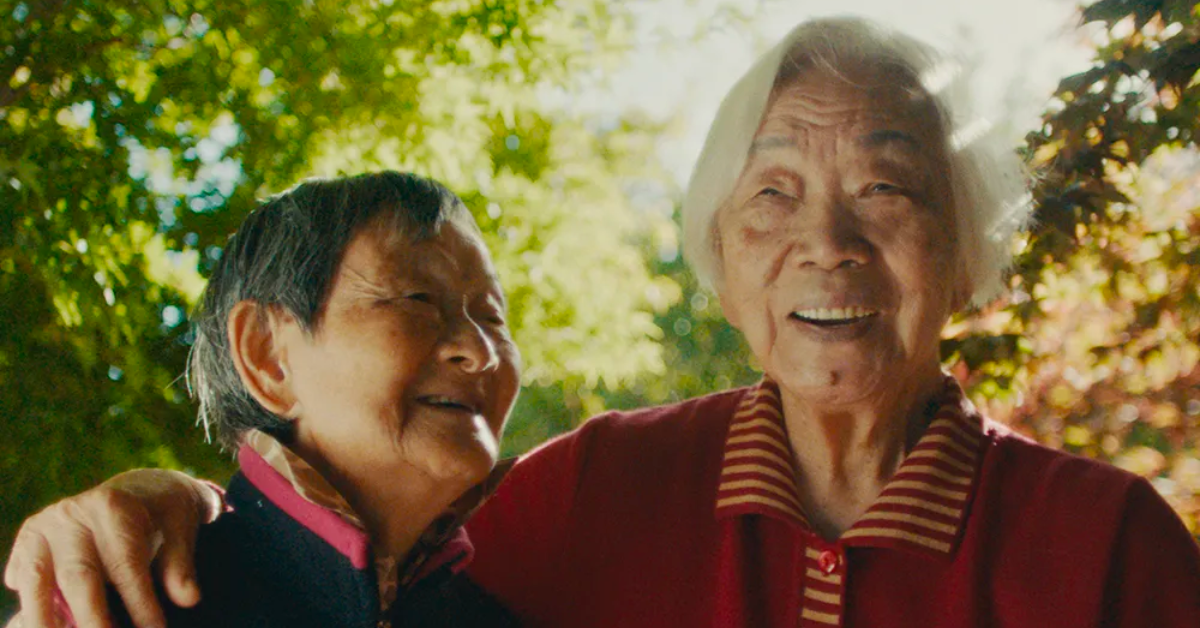
By Lydia Storie, Caring Across Generations
Care in Common
I didn’t expect to find much similarity between the movies American Fiction and Maestro, but here it is: the male protagonists in both of these Best Picture nominees become primary family caregivers. It’s not the focus of either story, but plays a pivotal role in the plot of the former and character arc of the latter.
On top of that, in the Best Documentary category, Eternal Memory follows a couple’s journey through Alzheimer’s and care, while Best Short Documentary nominee Nai Nai and Wài Pó centers two grandmothers and best friends who implicitly care for each other day to day.
It’s exciting to me to see a trend of films this year that aren’t shying away from showing the experiences of disability, aging, illness, and care, but are rather making the acts of giving and receiving care a visible and emotional part of the lives depicted on screen. All of their stories and depictions of care differ, but they each reflect how central care can be within our families and communities. Those of us who are in caregiving relationships know this to be true, of course, but our popular culture is just starting to catch up.
Two years ago I reflected on how powerful it was to see a visible moment of care occur on stage at the Oscars. That today we have four nominated films that each meaningfully include care in their storylines gives me hope that artists are finally recognizing it as more than a mundane detail of life, but rather a dimension of our existence that resonates deeply with viewers and adds authenticity to what’s on screen. These films are proof that the real-life challenges, stakes, and emotions of caregiving can be a key ingredient in great, relevant, and relatable storytelling.
Aging, illness, disability and care are pivotal to these four Oscar-nominated films:
1. American Fiction
This satirical comedy follows Monk, a talented but struggling literary author and professor, who spitefully churns out a novel that’s full of stereotypes and tropes as a way to prove the point that readers only want a certain kind of story from Black authors. But it’s the sudden and unexpected need to provide long-term care for his mother, who is diagnosed with dementia, that motivates him to follow through with publishing this book that he doesn’t believe in. While the events that ensue are at times heightened and absurd, there’s a very relatable truth underneath them: that people in the U.S. often have to go to great lengths to access and afford good care. Even for this relatively affluent family, one central question is how are they going to pay for long-term care. Monk’s joke of a book is the answer.
Special shout out to the very pointed joke about our insufficient care system – “Doesn’t Medicaid cover that?” Monk’s brother – a medical doctor! – asks. “It doesn’t work like that!” replies Monk. Sadly, he’s right. But most people aren’t aware that we’re not automatically covered for long-term care; moments like on screen can help us change that fact, especially when they’re so organically tied to the arc and tone of the story.
Nominated for: Best Picture, Best Actor (Jeffrey Wright), Best Supporting Actor (Sterling K. Brown), Best Adapted Screenplay, Original Score
Stream on: Amazon Prime
2. The Eternal Memory
This documentary takes us inside the relationship between two prominent Chilean cultural figures, revolutionary journalist and television presenter Augusto Góngora and former minister of the National Council of Culture and the Arts of Chile Paulina Urrutia. It’s the most overtly care-focused film on our list, as it uses Augusto’s journey with Alzheimer’s to examine the role of individual and collective memory. Pauli cares for him day-to-day in their home, while also reminding him (and us) of the many public achievements he will be remembered for.
More than anything, this is a love story. In some ways, it’s an ode to the millions of people providing long-term care to a spouse (just under 6 million in the U.S. alone). There is tenderness and joy, and there are challenges. It’s intimate and nuanced, revealing many of the complexities of dementia and care, but also reflective of their full selves and their unique relationship. Between these two, care is a profound expression of romantic love and devotion. The Eternal Memory is a great example of how stories that include caregiving can open a window into yet another dimension of our complex emotional lives.
Nominated for: Best Documentary
Stream on: Paramount+
3. Maestro
Caring for a spouse also marks a powerful emotional turn in this biopic of famed musical composer and conductor Leornard Bernstein (starring our Creative Care Council member Bradley Cooper!). The film overall goes behind the scenes of Bernstein’s larger-than-life public persona to reveal a more intimate portrait of him as a man, artist, partner, and family member. The main arc largely follows the romance and relationship between Bernstein and his life partner, actor Felicia Montealegre. When Felicia falls ill later in the film is arguable also when we see her husband at his most authentic, most human, and most relatable.
Again, the scenes of care reflect the depth of their love and connection, even amid a relationship that has its complications. Navigating illness and care together is a poignant layer within the overall portrait of their marriage. Leonard strives to honor Felicia’s wishes and to be fully present for her. As someone who is fueled by his work, it’s an emotionally significant moment when he pushes for time away from his professional responsibilities. There’s authenticity in balancing care and work, and even fleeting moments like these help validate and build value for the tightrope walk performed by tens of millions of family caregivers every day.
Nominated for: Best Picture, Best Actor (Bradley Cooper), Best Actress (Carey Mulligan), Original Screenplay, Cinematography, Sound, Makeup and Hairstyles
Stream on: Netflix
4. Nai Nai and Wài Pó
Care is more implicit in this delightful short documentary film that juxtaposes the
pursuit of simple daily joys with candid meditations on life, aging, and mortality. Filmmaker Sean Wang turns the camera on his two octogenarian grandmothers, “Nai Nai” and “Wài Pó,” who are best friends and roommates. Centering them is itself an act of defiance against our popular culture’s deeply rooted ageism; their story is evidence that life can be rich and complex at any age. Films that embrace aging as a part of life are essential to shifting us to a culture that prioritizes making it easier for all of us to age well.
But there are also nuances within their story that help build visibility for the subtle but important acts of care that emerge with age. There are nods to daily tasks like making food and remembering medication schedules, but also to the importance of emotional care, the relationships that help people feel connected and less alone. It’s a beautiful example of how that can occur across generations.
Nominated for: Best Documentary Short
Stream on: Disney+
Toward a more care-inclusive culture
Care is a fundamental part of life. As these stories show us, it doesn’t matter if you’re rich, famous, successful, or just an everyday person. It doesn’t matter how you identify in the world: we are all touched by aging, illness, or care at some point in life. It’s important for our popular culture to reflect this and help us all see that we are not alone in these experiences, but are in fact all connected by care. That said, I also wholeheartedly believe that embracing this part of life within our storytelling also leads to richer outcomes. The four films highlighted here are a testament to that.
If you’re a storyteller, I invite you to review our Care Inclusion Playbook and reach out – we’d love to help you authentically integrate more care into your work.
LYDIA STORIE is the Director of Culture Change for Caring Across Generations, leading the organization’s engagement work with the entertainment industry. Prior to joining Caring Across, Lydia spent over a decade as a creative executive and producer in film and TV.
